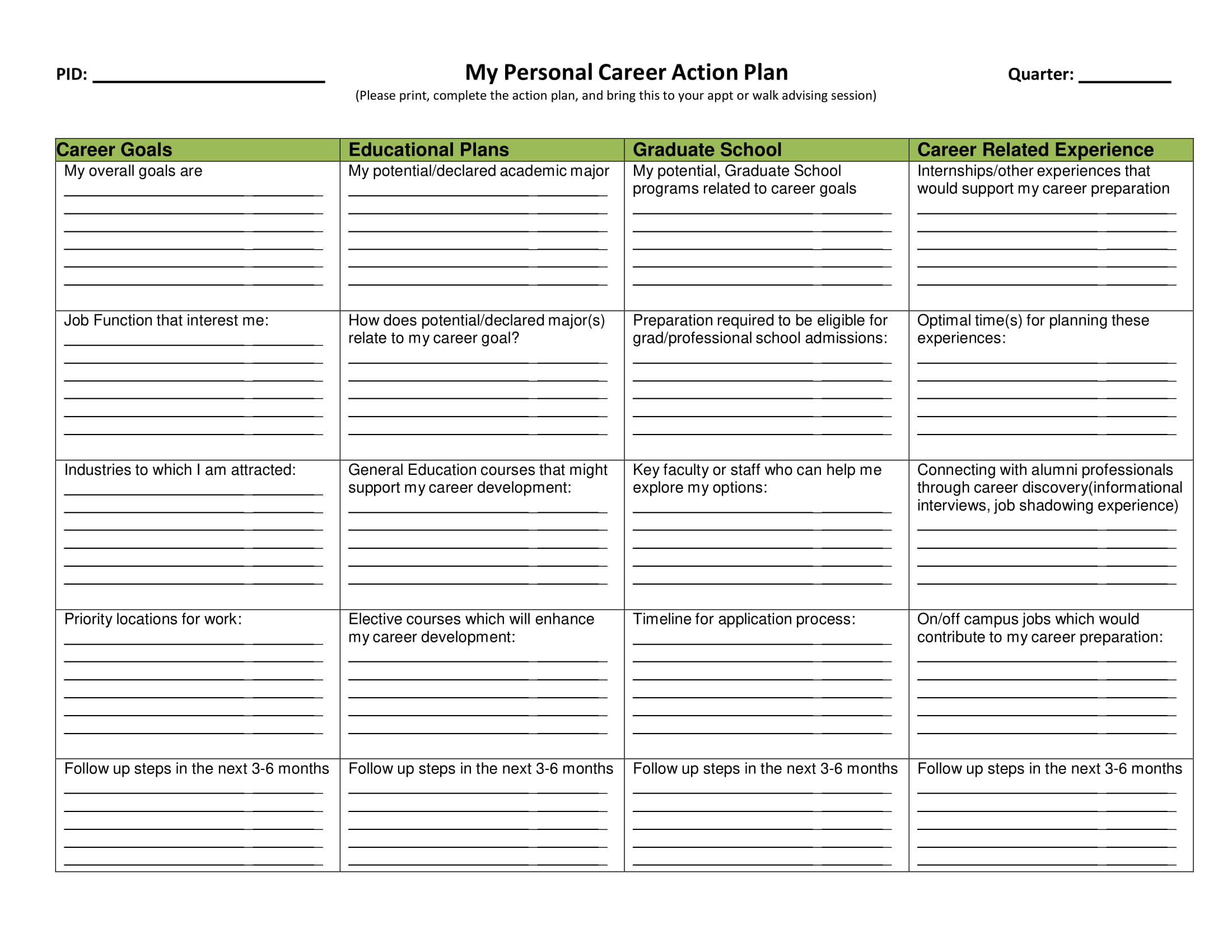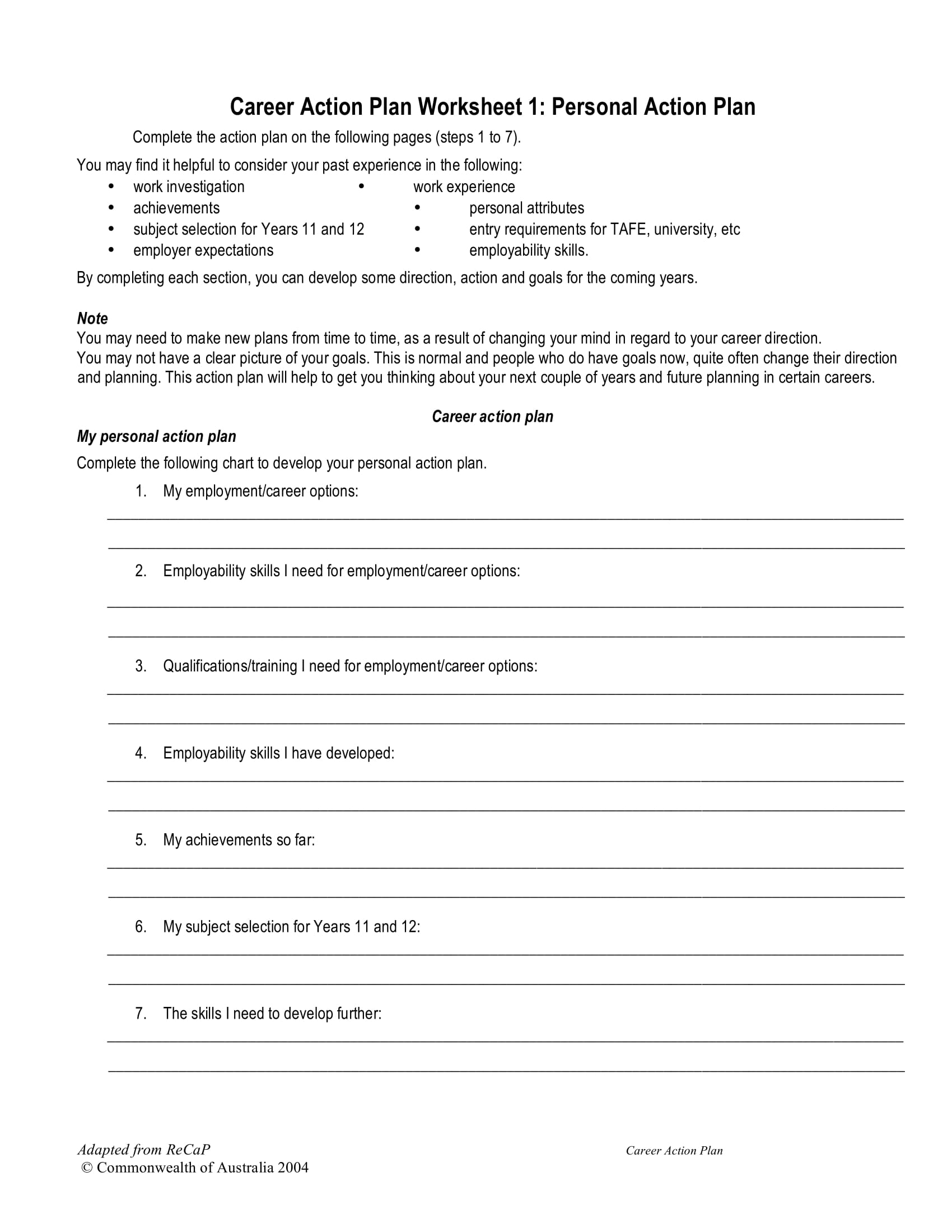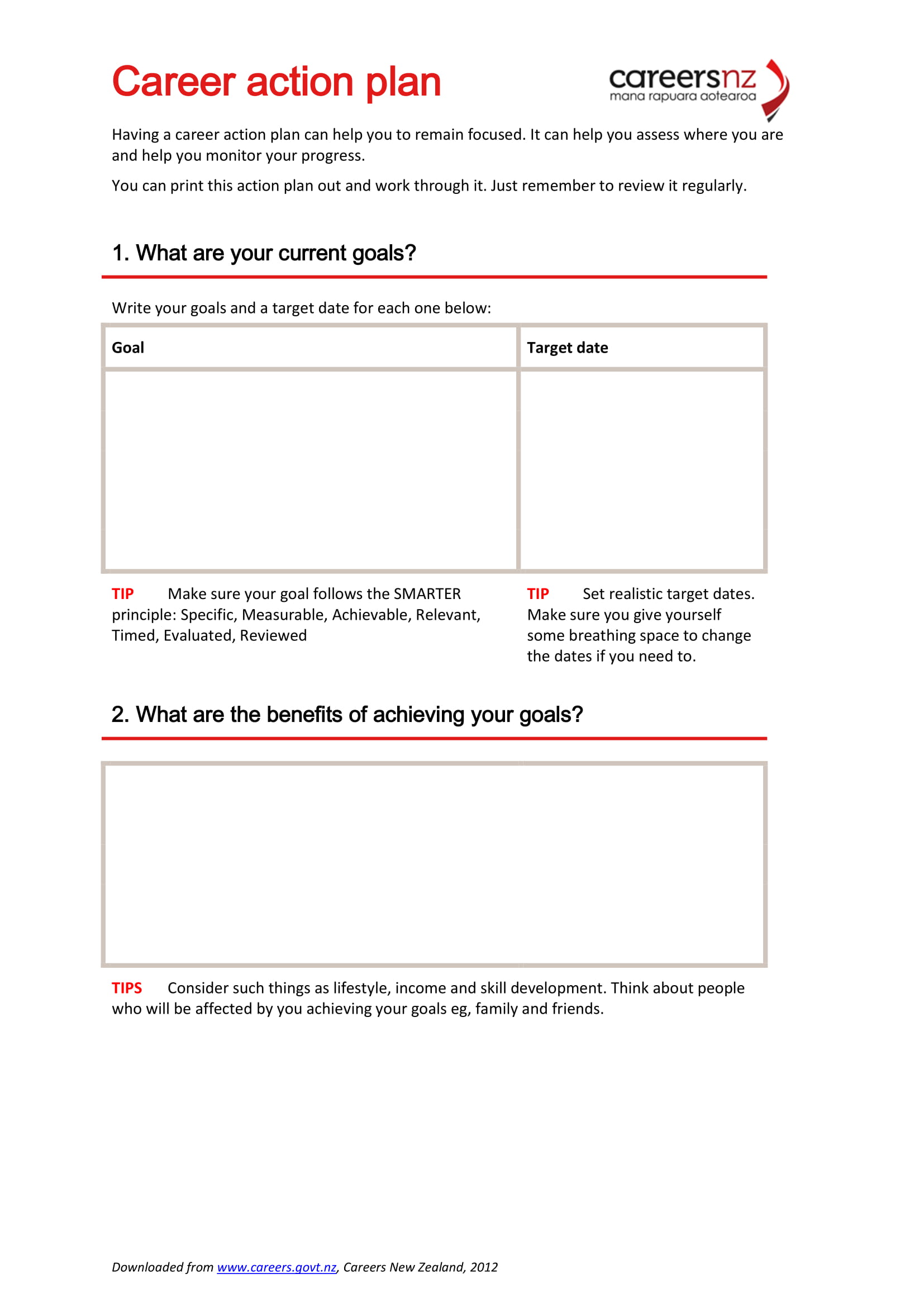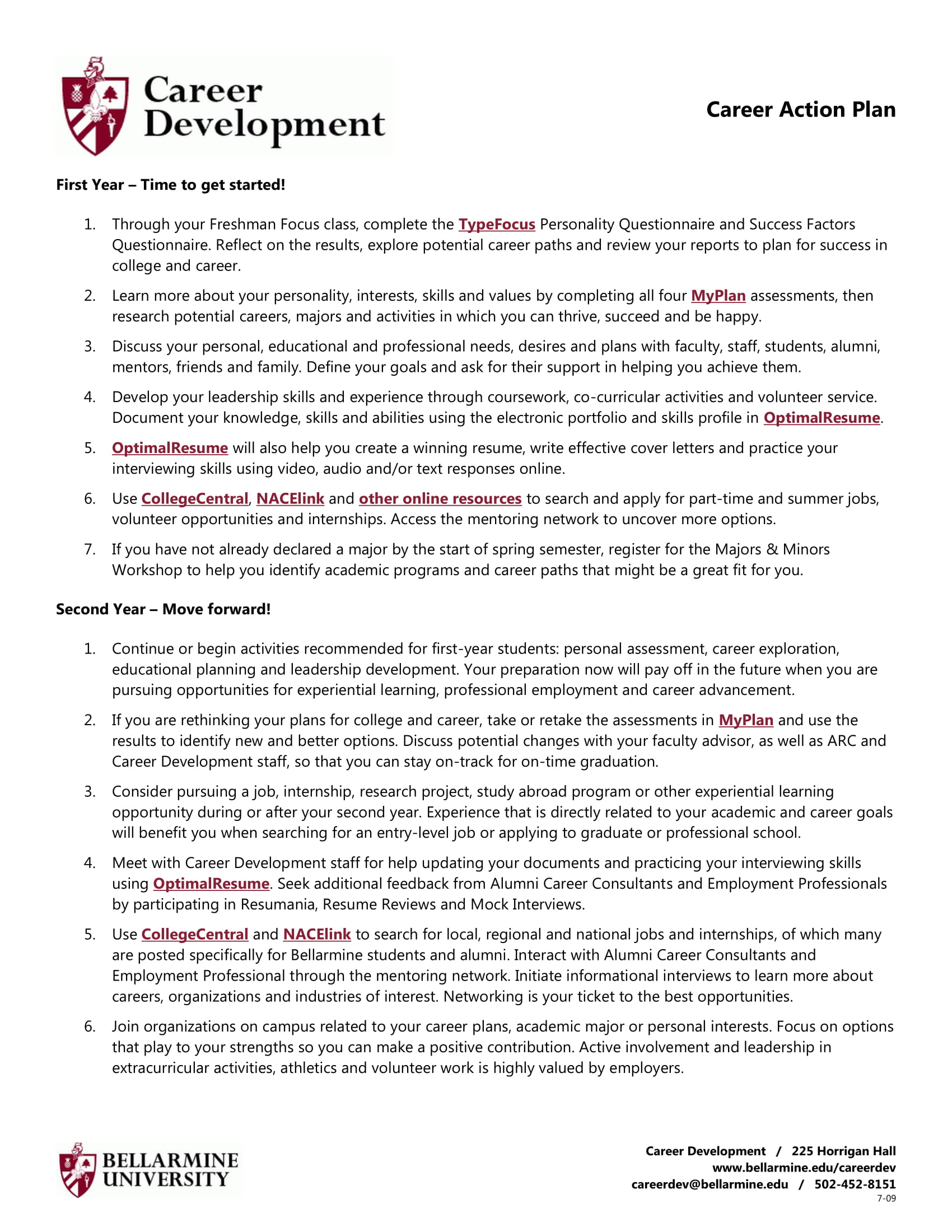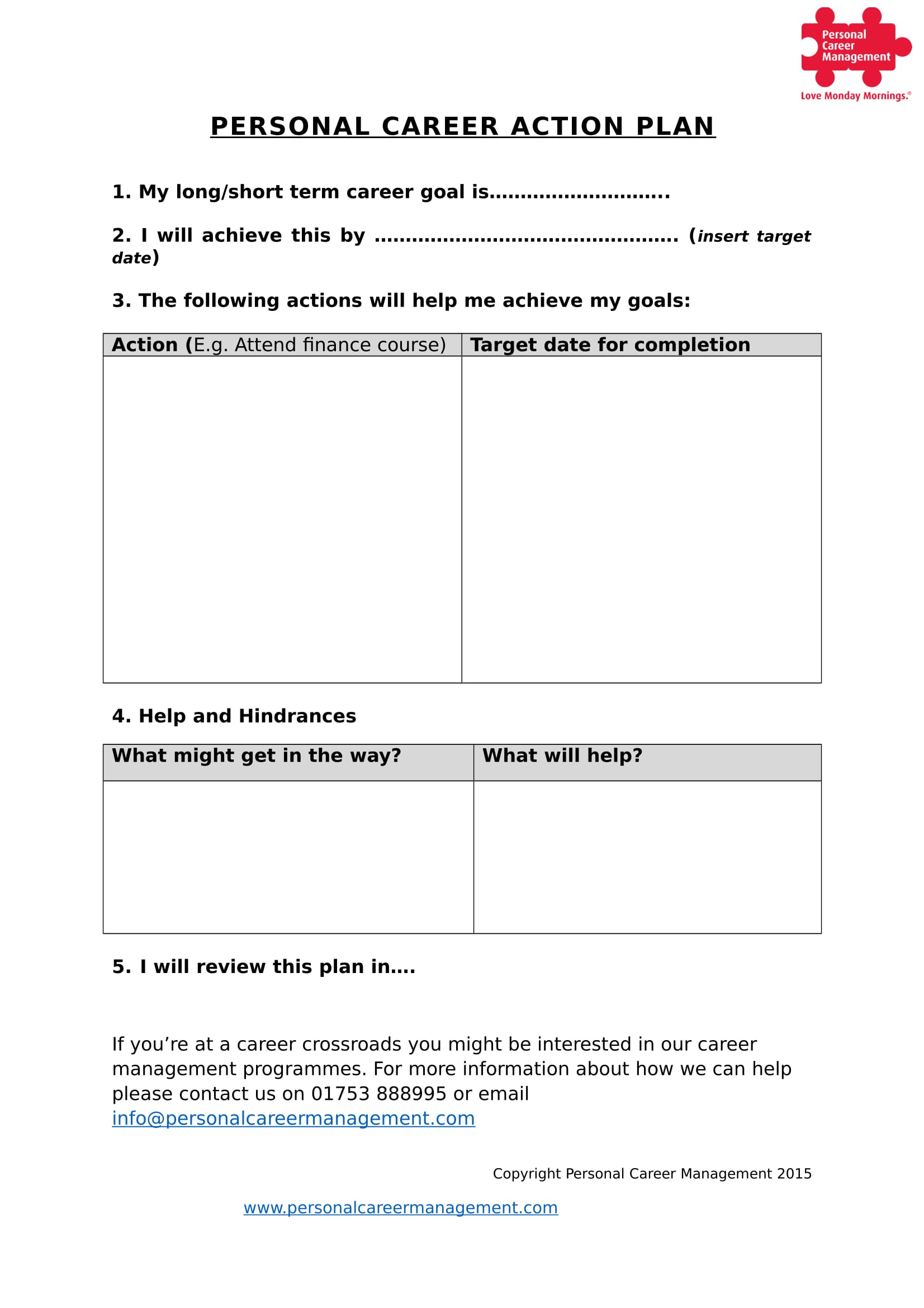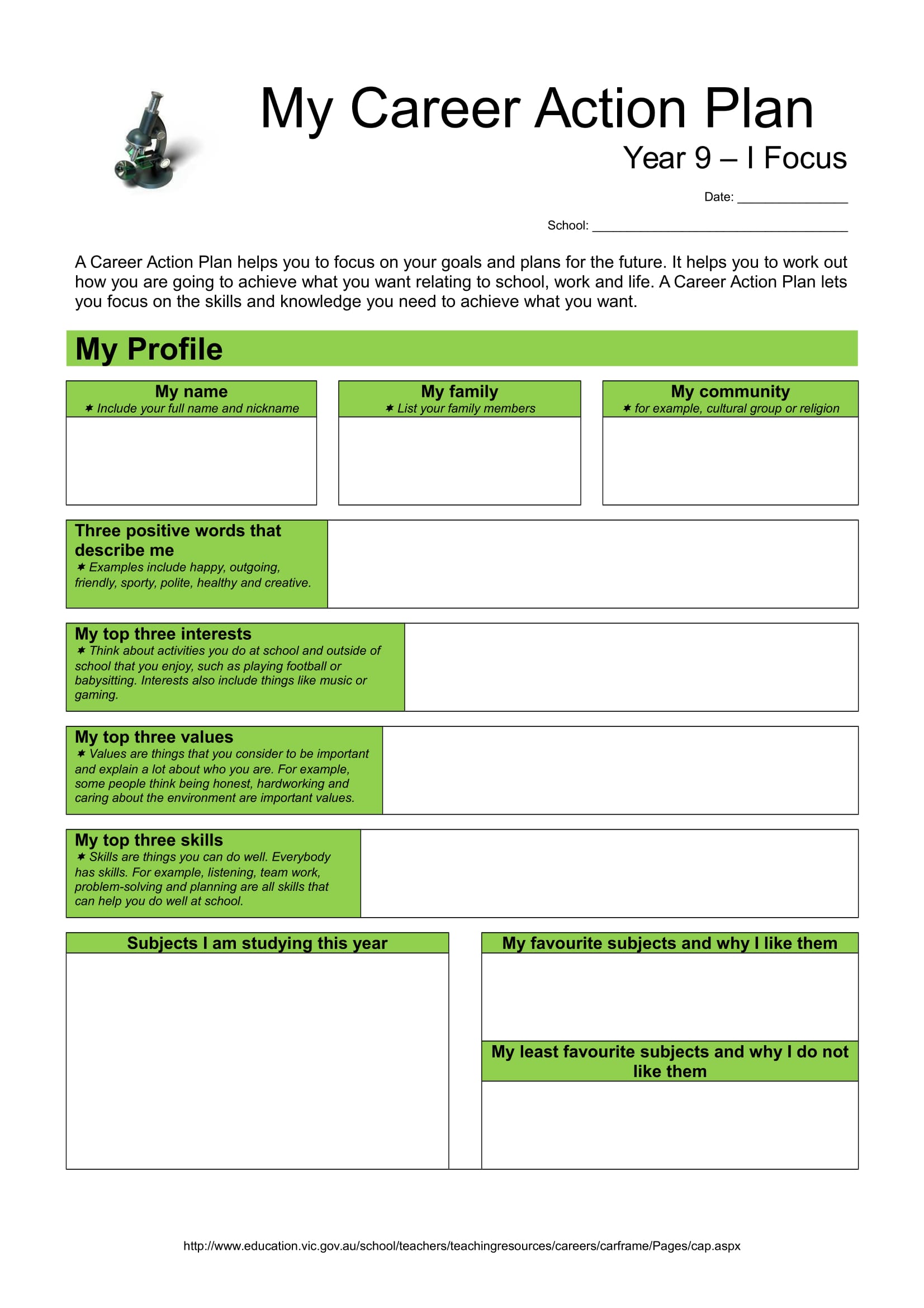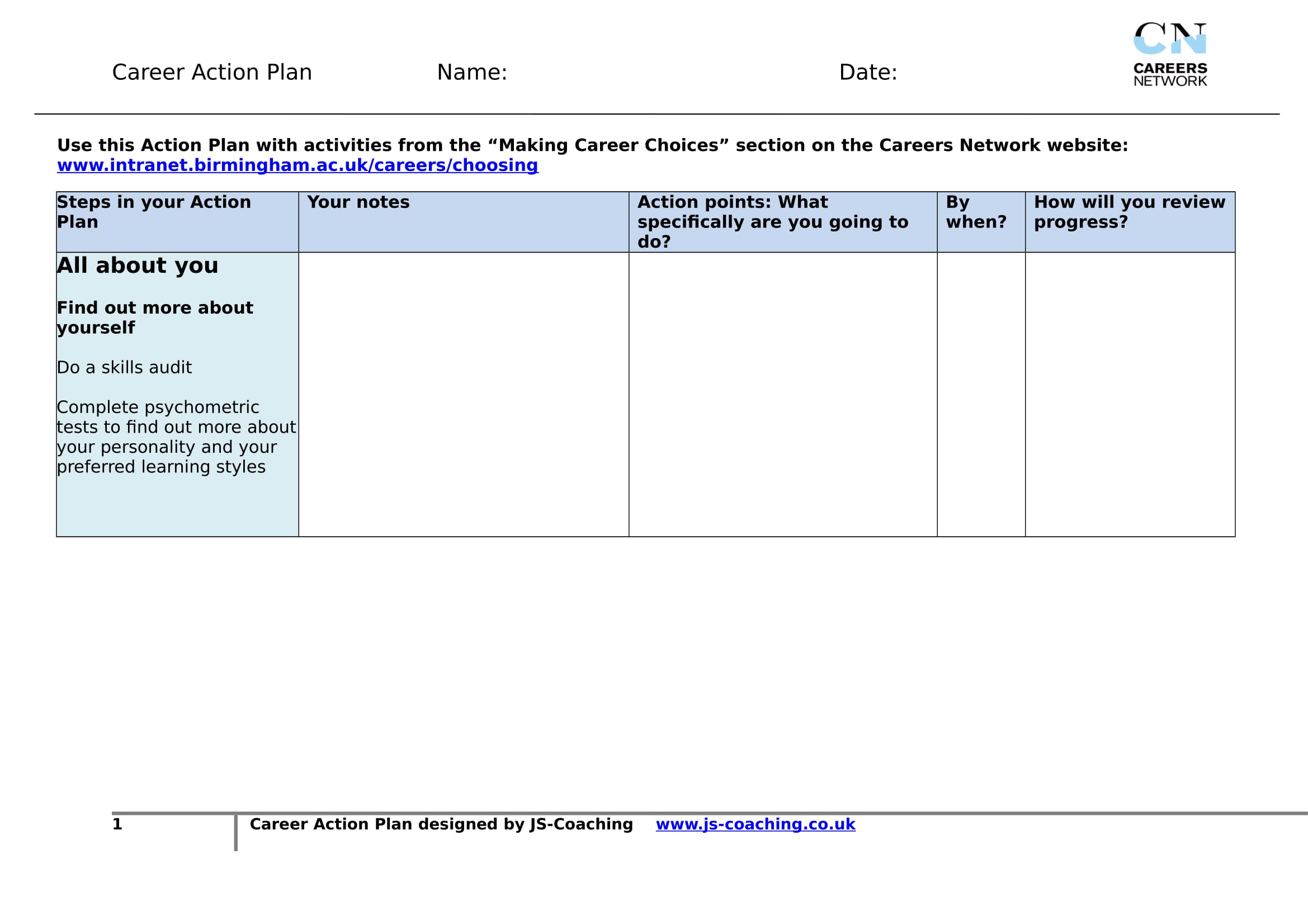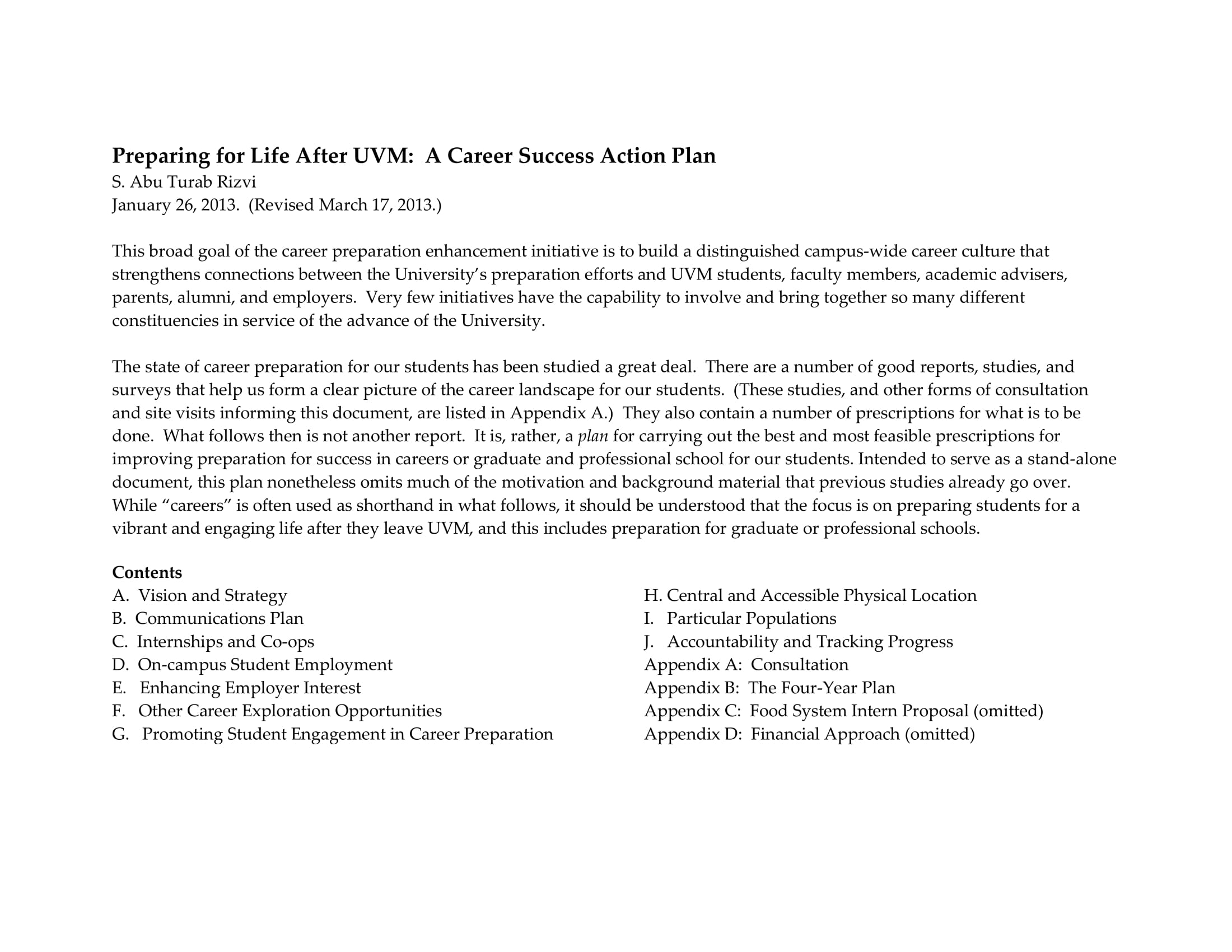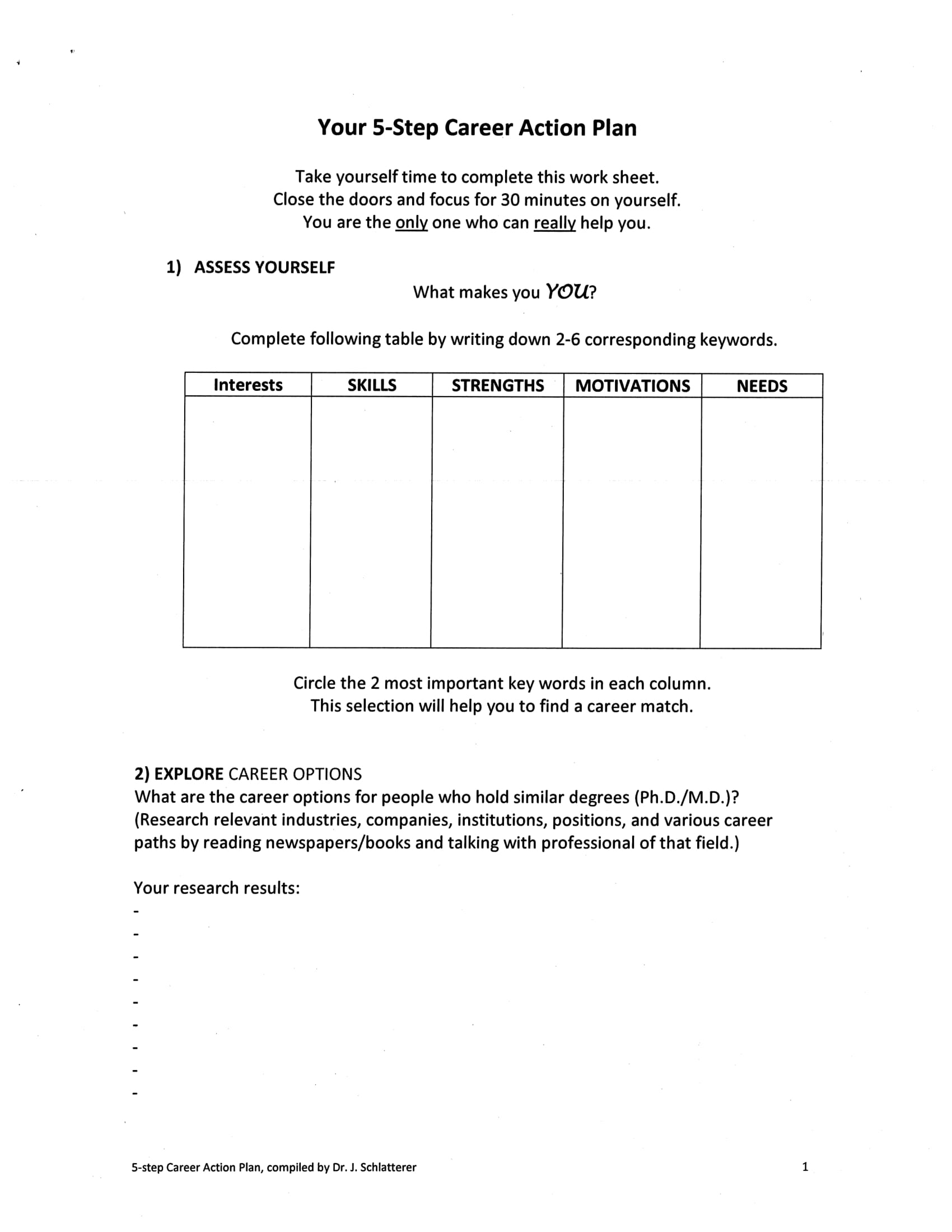9+ Career Action Plan Examples to Download
The ultimate goal after finishing a degree is getting a job that will utilize the specialized skills and knowledge you have learned through your years in the academe. Not only because the job will help you survive, but more importantly because you want to pursue what you are truly passionate about.
- 10+ Career Development Plan Examples – PDF, Word
- 10 Achievable Career Goal Ideas for Fresh Graduates
However, you must remember that as you immerse yourself in the corporate world, you will eventually find something that will lead you astray from the original path you have chosen. And that is acceptable; you can change your mind if you think changing your mind will do you more good than sticking to a job that does not interest you anymore. With uncertainty at bay, you need to constantly reevaluate what you are truly passionate about in order to be genuinely sure you gain satisfaction with what you are about to do.
Immediately after you graduate, it is always better to give yourself a chance to breathe. This is the best time for you to experience things beyond what has been taught in the classroom. This will also be the perfect time to get yourself involved with activities you have interest in. This way you can self-reflect what you actually want to do before joining the working force. Once you actually know yourself and your passion, only then will you be able to find the perfect career for you.

What Is a Career Action Plan?
A career action plan is a document that you can customize to fit your ideals. The document can be sued to establish the goals you wish to achieve in your career. It is basically a road map that will lead you from choosing an occupation to getting a job and strengthening your career. Simply put, the career action plan contains your ideal career and the necessary steps you need to take in order to reach it. The plan will serve as your guide as you journey into reaching your main career goal/s.
With that in mind, a career action plan can either be made as you begin your journey into your career or as you near your retirement. Either way, it will guide you as you make new career changes. The plan will let you make clear priorities for your career. In addition, the plan will also let you establish a vision of where you want to be on a certain point of your career/life. Your career action plan will allow you to assess your strengths and weaknesses so that you can build around them. It will make it easier for you to make a decision for your next step if have a strong basis.
Moreover, a career action plan will also allow you to reevaluate job promotion opportunities should it present itself. And since the plan is only for personal use, it can be personalized; meaning there is no right or wrong way to make it. Furthermore, it has enough flexibility to allow you to adjust your goals and timelines, as you see fit. With that, a career action plan is an effective document that will let you assess your current abilities that can help you pinpoint where you can proceed with your career and how should you get there.
Personal Career Action Plan Template Example
Career Action Plan Worksheet Example
Career Action Plan Format Example
College Career Action Plan Example
Contents of a Career Action Plan
Your career action plan is somewhat tasked to assess your ability to manage your career/s from beginning to end. Since the plan is intended to guide you to figure out what you should do with your career and how to effectively do it, it should contain all the information you will need as basis. With that, here are some of the contents that should be included in a career action plan:
- Current situation – This is where you describe your current situation in terms of qualifications, skills, abilities, personal attributes, strengths, and weaknesses. However, you only need to include those that are relevant to any career ideas, job sector, or perhaps an organization that you want to work for. This will allow you to have a clear picture of your current status as a professional and will serve as your basis when you make new decisions.
- Ideal situation – Your ideal situation is basically your career goals. What career would you rather have aside from your current one? Or what position would you want to achieve next? You should present a clear description or a specific title or position you wish to achieve.
- SWOT analysis – It is also important for your action plan to offer you an objective insight about yourself and your abilities. Therefore, it is very useful to include an assessment of your strengths, weaknesses, opportunities, and threats that have a direct relation to your career goals.
- Steps toward goals – It is also important to include a specific strategy regarding what you plan to do in order to reach your goals. This also means you need to include and set some targets with their specific deadlines.
- Resources – A list of resources that you can use to research your career opportunities and to plan your actions will be a great help for your career action plan. Your resources should consist of the prospects’ website, courses, training, your tutor, careers adviser, or anything/anyone else that you can engage with in order to enhance your career aspirations.
- Reflection – Your reflection should explain what you think and feel about your career plans. You can only do this by objectively evaluating your careers plans that you have made so far. You need to ask yourself if you deem yourself successful with how far you have gone in your career. If not, ask yourself what you need to change.
Basic Career Action Plan Template Example
Editable Career Action Plan Example
Comprehensive Career Action Plan Example
Career Action Planning Process
Now that you know the significance of a career action plan, you should start thinking where you should begin your planning process. It is important to have a clear understanding on what you need to do in order to make an effective career action plan. Thus, here is an account of the career action planning process you can follow:
1. Consider where you currently are
Your planning processes should definitely start with examining your current situation. You should assess where you currently are in relation to your career goals. This will allow you to objectively examine where you should start your process of improving or advancing your career. This will also allow you to consider if work matches your aspirations, needs, and lifestyle. During this step you should take your time to decide whether you are satisfied with where you are currently at in your career or whether something needs to change.
2. Decide where you want to be
Although you already have a clear idea on the career that you want to pursue or you have clear understanding to your current career, it is always interesting and refreshing to explore other possibilities. This is most prevalent when you are really not happy with your current position. With these thoughts of checking or trying out other opportunities, you will be able to create a realistic vision for your future. The information or thoughts you have about the career that you want to do will be your starting point for your vision. It can help you decide on what you genuinely want to do for the rest of your life.
3. Plan on how to get there
This is the part where you decide what strategy or approach you will use in order to achieve your career goals. It is very helpful if you identify specific tasks that will let you achieve your goals, this way you can also stay focused and committed to your career goals. The broad goals you haves set will serve as an overview of what you intend to do, but breaking them down to realistic and practical step-by-step tasks will help you reach your end goal. With that in mind, setting SMART goals will help you stay on the right track.
SMART goals are basically clear objectives written in a simple and concise manner. It stands for Specific, Measurable, Achievable, Relevant, and Timed (SMART) goals that you want to achieve throughout your plan. It basically lets you highlight what you need to do and specifying a clear outcome withing a time frame. In order to set SMART goals you need to:
- Specific – Identify a clear goal/s that you want to achieve.
- Measurable – How will you determine when you’ve done it?
- Achievable – Is it possible to achieve within your specific time frame? Are you motivated to complete it?
- Relevant – Is the goal/task relevant to your specific career goal?
- Timed – When will you complete your goal? Present a timeline.
4. Take the necessary action
This part is when you should start to implement your plan. However, although you have a clear picture of what you should do and a plan on how to do it, it can still be challenging to complete. You can even get sidetracked although you have a clear outline and time frame. But you should not be easily discouraged, there are some things you can do to help you stay on track.
- Examine your commitment to completing your goal/s. Reflect on your goal and decide if you are actually committed to achieving them. If you see that you are quite not committed to it, see to it what you can change in order to be committed to it. Make sure to adapt those changes to your plan.
- Make sure your goals are clear and feasible. The goals you set should always be realistic. It will be a waste of time to set goals that you know are almost close to impossible to achieve. Your goals should be clearly defined in order for you to achieve them. And although it is okay to set challenging goals, make sure they are well within what you’re capable of.
- Make lists or use reminders. Making to-do lists will allow you to have a clear sense of progress every time you tick off items off your list. You can also use reminders to help you kick-start your momentum.
- Enlist the support that you will need. Although this is a personal goal, you can still enlist for help form other people especially during the planning process. This will allow you to gather useful insights and information that can help you achieve your goals.
- Brainstorming can lead you to success. When you are faced with a road block, brainstorming can help you find ways to continue on with your goals. This will give you enough ideas on how you can proceed as planned. Although this may bring change to your original plan, it can still help you achieve the goals you have already set.
- Reward yourself. Once you see the progress you have had so far, you need to reward yourself for getting as far as you have. Positive reinforcement will inspire you to stay determined.
5. Review your progress
You have come a long way in order to reach your goals, although you may be preoccupied with the tasks that you still need to complete, do not forget to review and realign your focus. Reviewing your progress will also allow you to reflect back to why you started the journey, reminding you to continue on.
Printable Career Action Plan Template Example
Career Success Action Plan Example
Career Action Plan Outline Example
We hope that this article has helped you learn important information about a career action plan and the corresponding career action plan process.



